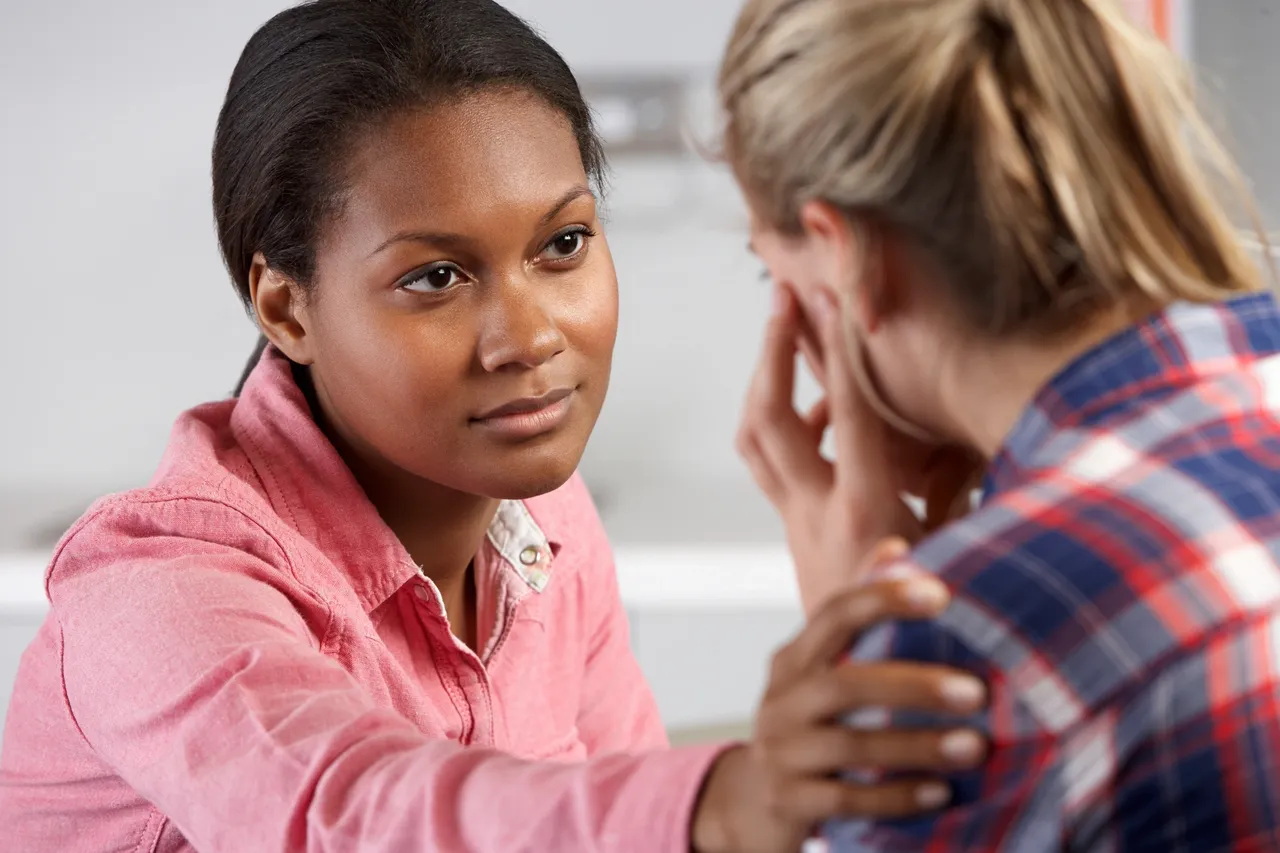Introduction
Mental health challenges affect 1 in 5 teens, yet many parents struggle to identify early warning signs. Your ability to recognize these signs can make a crucial difference in your teen’s life, enabling timely intervention and support during these formative years.
At Build Bright Care Group, we understand the complex nature of adolescent mental health. Our specialized team provides evidence-based treatment for teens aged 12-17 in California, creating a safe space for healing and growth. We’ve witnessed how early recognition of mental health challenges leads to better outcomes, stronger family relationships, and improved academic performance.
Your teen’s mental well-being matters. By learning to spot early signs of distress, you can take the first step toward helping your child navigate these challenges with confidence and professional support.
Understanding Mental Health in Teens
Mental health includes your psychological, emotional, and social well-being – factors that shape how you think, feel, and act. During adolescence, these elements become particularly crucial as teens navigate significant physical, emotional, and social changes.
Common Mental Health Conditions in Teens:
- Anxiety Disorders: Affecting millions of adolescents, anxiety manifests through symptoms such as excessive worry, fatigue, difficulty concentrating, muscle tension, and sleep problems.
- Depression: Depression is characterized by persistent sadness or irritability, loss of interest in activities, difficulty concentrating, fatigue, and changes in appetite and sleep patterns (between other symptoms).
- Oppositional Defiant Disorder: Manifests by a pattern of anger or irritability, defiance, argumentativeness, and provocative behaviors.
- ADHD: About 9.4% of adolescents struggle with attention, hyperactivity, and impulse control
- Substance Use Disorders: Adolescents often use drugs or alcohol to cope with mental health issues, but this worsens their condition over time. It disrupts brain development, increases addiction risk, and makes emotions harder to manage.
Untreated mental health challenges can lead to:
- Poor academic performance
- Strained relationships with family and friends
- Increased risk of self-harm
- Higher likelihood of substance abuse
- Long-term impact on career prospects
- Persistent mental health issues in adulthood
The teenage brain continues developing until around age 25, making early intervention critical. Research shows that 50% of mental health conditions begin by age 14, highlighting the importance of recognizing and addressing these challenges during adolescence.
For those seeking help for their teen’s mental health issues such as autism, there are various evidence-based treatments available. At Build Bright Care Group, we offer a variety of therapies tailored to help your child reach his or her full potential. Our approach includes residential treatment options which can be beneficial for children facing severe mental health challenges.
Early Signs of Mental Health Challenges
Mental health challenges in teens can show up in different ways. Parents need to be alert and recognize these signs early on so they can provide support and help when needed. While it’s normal for teenagers to have occasional mood swings, persistent changes could indicate underlying mental health issues.
Key Warning Signs to Watch For:
- Sudden personality shifts
- Unexplained outbursts
- Persistent feelings of sadness
- Withdrawal from previously enjoyed activities
- Changes in sleep patterns
- Difficulty managing daily tasks
- Extreme reactions to minor situations
1. Mood Changes
Teens dealing with mental health issues often exhibit significant changes in their moods. These shifts can vary from subtle adjustments to dramatic swings that impact their everyday lives.
Common Mood-Related Signs:
- Increased Irritability: Quick to anger over minor issues
- Excessive Tearfulness: Crying spells without clear triggers
- Emotional Numbness: Lack of reaction to typically emotional situations
- Persistent Sadness: Feeling down for extended periods
- Rapid Mood Swings: Quick shifts between different emotional states
A teenager might seem happy one moment and deeply upset the next, with these changes happening more frequently than usual teenage mood swings. Parents should pay attention to patterns of mood changes lasting longer than two weeks, as this duration often suggests a potential mental health issue rather than normal teenage development.
These shifts in mood can affect a teen’s relationships, academic performance, and daily activities. The intensity and frequency of these changes usually separate typical teenage behavior from possible mental health problems.
2. Behavioral Changes
Significant shifts in your teen’s daily routines can signal underlying mental health challenges. Watch for these key behavioral indicators:
- Academic Performance: Sudden drops in grades, missing assignments, or difficulty concentrating in class
- Sleep Patterns: Sleeping too much or experiencing insomnia, staying up unusually late
- Eating Habits: Skipping meals, binge eating, or significant weight changes
- Daily Activities: Abandoning previously enjoyed hobbies or sports
- Personal Care: Neglecting hygiene, wearing the same clothes repeatedly
- Screen Time: Excessive use of social media, gaming, or other digital activities
- Risk-Taking: Engaging in dangerous activities or showing poor judgment
- Routine Changes: Difficulty maintaining schedules or completing basic tasks
These changes often develop gradually. Creating a log of observed behaviors can help identify patterns and provide valuable information for mental health professionals.
3. Social Issues
Social connections play a vital role in teen development. A sudden shift in social behavior can signal underlying mental health challenges. Watch for these specific signs:
- Withdrawal from family activities – Refusing to participate in previously enjoyed family gatherings or meals
- Social isolation – Spending excessive time alone in their room
- Digital escape – Replacing real-world interactions with excessive online activity
- Friendship disruptions – Sudden loss of close friends or difficulty maintaining relationships
- Social anxiety – Expressing intense fear or worry about social situations
- Peer relationship changes – Dramatic shifts in friend groups or avoiding longtime friends
- Communication breakdown – Reduced interaction with family members or peers
These social changes often indicate deeper emotional struggles. Teens experiencing social difficulties might express feeling misunderstood, rejected, or disconnected from their peers. Parents should note patterns of social withdrawal lasting longer than two weeks, particularly when combined with other behavioral changes.
4. Cognitive Symptoms
Cognitive symptoms can be subtle yet significant indicators of mental health challenges in teens. Watch for these key signs:
- Difficulty concentrating: Your teen might struggle to focus during class or complete homework tasks they previously handled with ease
- Memory issues: Notice if they frequently forget important dates, assignments, or daily responsibilities
- Racing thoughts: They may express feeling overwhelmed by constant, uncontrollable thoughts
- Decision-making challenges: Simple choices like what to wear or eat become unusually difficult
- Negative thought patterns: Listen for phrases like “I’m not good enough” or “Nothing matters”
- Academic performance changes: Unexplained drops in grades or sudden disinterest in favorite subjects
- Time management struggles: Tasks that once took minutes now require hours to complete
These cognitive changes often accompany feelings of hopelessness and worthlessness. Your teen might express beliefs that their situation won’t improve or display an inability to envision their future. Pay attention to how they process information and approach daily mental tasks – significant changes can signal underlying mental health concerns.
5. Physical Symptoms
Mental health challenges often show up as physical symptoms, creating a direct link between emotional distress and bodily discomfort. Your teen might experience:
- Unexplained headaches
- Persistent stomach pain
- Muscle tension and body aches
- Changes in appetite
- Fatigue or low energy
- Difficulty sleeping
- Rapid heartbeat or chest pain
- Dizziness or lightheadedness
These somatic symptoms – physical signs of psychological distress – can be particularly challenging to identify as mental health-related. Many parents initially seek medical care for these symptoms, yet medical examinations often reveal no underlying physical cause.
Physical symptoms can get worse during stressful times, like exam weeks or social conflicts. When your teen complains of recurring physical discomfort without clear medical explanation, it could be a sign of emotional struggles.
Pay attention to patterns – physical symptoms that appear alongside other behavioral or emotional changes deserve closer observation and professional evaluation. Your teen’s body might be sending signals about their mental well-being through these physical signs.
6. Substance Use
Substance use in teens often serves as a red flag for underlying mental health challenges. Many adolescents turn to drugs or alcohol as a form of self-medication, attempting to cope with:
- Anxiety or depression symptoms
- Social pressures
- Academic stress
- Family conflicts
- Emotional pain
Watch for these warning signs of substance use:
- Missing prescription medications
- Unexplained money requests
- Finding drug paraphernalia
- Alcohol disappearing from home
- Changes in friend groups
- Declining personal hygiene
- Secretive behavior about possessions
- Unusual chemical smells on breath or clothing
The relationship between mental health and substance use creates a complex cycle – mental health issues can trigger substance use, while substance use can worsen existing mental health conditions. Early identification allows for proper intervention, addressing both the substance use and underlying mental health concerns through specialized treatment programs.
7. Suicidal Thoughts
Suicidal thoughts are the most serious warning signs of mental health challenges in teens. Parents should take immediate action when their teen:
- Makes direct statements about death or suicide
- Gives away prized possessions
- Shows sudden mood improvement after prolonged depression
- Creates artwork or writing focused on death
- Engages in self-harm behaviors
Critical Warning Behaviors:
- Researching suicide methods online
- Making final arrangements or goodbyes
- Expressing feelings of worthlessness
- Talking about being a burden to others
- Displaying extreme social withdrawal
These signs require immediate professional intervention. Call the National Suicide Prevention Lifeline (988) for immediate support. Remember: asking your teen directly about suicidal thoughts won’t plant the idea – it opens a vital conversation and shows you care.
Build Bright Care Group provides specialized services for teens experiencing suicidal thoughts, offering support, 24/7 monitoring, and comprehensive treatment plans designed to uncover and address the root causes of their distress.
8. Changes in Friendships
Sudden shifts in your teen’s social circles can signal underlying mental health challenges. Watch for these specific changes in friendship patterns:
- Abandoning long-term friends for a completely new social group
- Choosing friends who engage in risky behaviors
- Isolating from previously close relationships
- Spending time with peers who share negative attitudes or destructive habits
A teen’s choice of friends often reflects their internal struggles. New peer groups might enable unhealthy coping mechanisms or validate negative self-perceptions. Pay attention to:
- The values and behaviors of new friends
- Your teen’s personality changes when around certain peers
- Signs of peer pressure or manipulation
- Social media connections and online relationships
These friendship changes can indicate your teen’s attempt to find acceptance or escape from emotional pain. Regular, non-judgmental conversations about friendships help you understand their social dynamics and identify potential red flags.
How Parents Can Support Their Teens’ Mental Health Needs During This Critical Time?
Creating a supportive environment for your teen starts with establishing trust and open communication. Here are essential strategies to help your teen navigate their mental health challenges:
1. Create dedicated “safe spaces” for conversations
- Set aside regular, uninterrupted time for one-on-one talks
- Choose neutral locations where your teen feels comfortable
- Turn off phones and eliminate distractions
2. Practice active listening techniques
- Maintain eye contact and give full attention
- Reflect back what you hear: “It sounds like you’re feeling…”
- Avoid interrupting or rushing to give advice
3. Validate their feelings
- Acknowledge emotions without minimizing them
- Use phrases like “That must be really hard”
- Share appropriate personal experiences when relevant
4. Model healthy emotional expression
- Be open about your own feelings
- Demonstrate positive coping strategies
- Show it’s okay to ask for help
5. Maintain consistency and structure
- Keep regular family routines
- Set clear, reasonable expectations
- Create predictable daily schedules
Remember that supporting your teen’s mental health isn’t about having all the answers. Your role is to provide a safe, judgment-free space where they feel heard and understood. Small, consistent actions build the foundation for meaningful conversations about mental health.
When to Seek Professional Help and What Treatment Options Are Available?
Professional intervention becomes crucial when your teen’s mental health symptoms:
- Persist for two weeks or longer
- Interfere with daily activities
- Impact school performance
- Affect relationships with family and friends
- Lead to self-harming behaviors
- Create significant changes in eating or sleeping patterns
Available Treatment Options
Psychotherapy
- Cognitive Behavioral Therapy (CBT)
- Dialectical Behavior Therapy (DBT)
- Family therapy
- Group therapy sessions
Medication Options
- Antidepressants
- Anti-anxiety medications
- Mood stabilizers
- ADHD medications
Your healthcare provider will create a personalized treatment plan based on your teen’s specific needs. Many teens benefit from a combination of therapy and medication.
Trusted Resources for Mental Health Support
- National Institute of Mental Health (NIMH) offers educational materials and research updates
- Mayo Clinic provides comprehensive guides on childhood mental health disorders
- School counselors can offer immediate support and referrals
- Mental health crisis hotlines provide 24/7 assistance
Treatment success rates increase with early intervention. For instance, if your teen is struggling with teen depression, seeking specialized programs can significantly help. Similarly, if ADHD is a concern, Build Bright Care Group offers tailored treatment options. This organization specializes in evidence-based treatments for adolescents ages 12-17, offering comprehensive mental health assessments and personalized care plans.
Taking Proactive Measures Towards Supporting Your Teen’s Mental Well-Being!
Supporting your teen’s mental health requires consistent, proactive engagement. Here are essential steps you can take today:
- Create daily check-in routines with your teen
- Model healthy emotional expression and coping strategies
- Establish consistent sleep schedules and promote physical activity
- Limit social media use and encourage face-to-face interactions
- Build a support network of trusted adults in your teen’s life
Early intervention makes a significant difference. At Build Bright Care Group, we offer specialized mental health treatment for adolescents ages 12-17 in California. Our evidence-based approaches address various mental health challenges such as anxiety and panic attacks, providing your teen with tools for emotional resilience.
Your teen deserves comprehensive, compassionate care tailored to their unique needs. Don’t wait until crisis points – reach out to Build Bright Care Group today. Our experienced team stands ready to support your family’s journey toward mental wellness.
- Schedule a consultation
- Learn about our treatment programs, including those for teen bipolar disorder and other conditions
- Get answers to your questions about teen mental health support
With our leading Teen Mental Health Program in California, we help adolescents overcome mental health and behavioral challenges in a supportive environment. Don’t hesitate to contact us now to start your teen’s path to emotional well-being.











